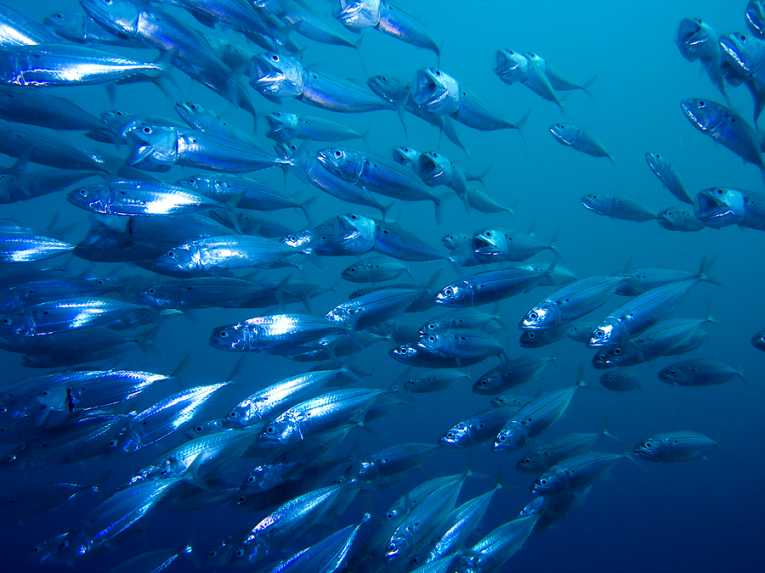The UK has seen something of a celebrity chef revolution recently. No, I'm not talking about an angry uprising by culinary young turks, wanting better pay for kitchen juniors. We're talking about all that Messrs Oliver and Fearnley-Whittingstall have achieved in the last couple of years - something that the UK's maligned and mistrusted politicians could only dream of. Surprising, possibly even to themselves, they have gotten the apathetic British public off of their sofas, and passionate about making positive changes to how their food is produced.
Out of the kitchen and into the ministry: Having broken out from their gilded kitchens, and being able to prise open the lid on the industrial-farming and factory-fishing that underpins our cheap food, the TV chef duo have shocked an apathetic nation into clamoring for meaningful differences to the way food is done. And Hugh Fearnley-Whittingstall, in particular, has opened up the public's eyes to a towering environmental problem - the plight of the oceans - which offers up hope for a sea-change in attitudes.
While Jamie Oliver has seen off the battery-hen barons, Hugh Fearnley-Whittingstall has gotten the EU Common Fisheries Policy firmly on the hook - over the dreadful waste from the discarding of fish catches. That is one of the perverse results from the policy's asinine quota system, which is supposed to protect fish. The banning of these discards is now on the cards across Europe, thanks to a revised EU Common Fisheries Policy, slated to begin in 2013.
And the UK government is also backing the idea promoted on his show - Fish Fight on Channel 4 - for lovers of fish extend their repertoire beyond the threatened staples, to embrace the less-well known, but still plentiful species. That has seen sprats and whiting, dab and pouting making their way onto British plates in increasing numbers this summer. Which is all well and good - a couple of wins for fisheries conservation, and the public can move on to tick the next environmental check-box.
The right to plunder?: Except that all is still very much not well and good, out-at-sea. Cod stocks have recently collapsed in Scottish and Irish waters, thanks to a lack will to set realistic quotas. Italian fishermen are being allowed to flout the Europe-wide ban on drift-nets, with the EU only slowly wielding the cudgel at the Italian government. The refusal of Iceland and the Faeroe Islands, to stop sucking mackerel out of the NE Atlantic fisheries, have seen their MSC-accreditation revoked. And across the globe, deep-sea trawling continues apace, five years after UN resolutions called for governments to halt this disruptive practice in the most-threatened areas.
It seems all-around the world, short-sighted governments are failing to see the bigger picture, and are digging in to defend their right to fishing piracy. All the patchwork quilt of enfeebled international organizations seem to be able to do is to wag their fingers. It's enough to wish for an army of celebrity chefs to descend on Fisheries Ministries, across the globe, to knock some common sense - and maybe a sustainably-sourced potted mackerel or two as well - into them.
But the hard reality is that while the world's oceans remain a free-to-all 'commons', without firm laws, and sheriffs to enforce them, then the plunder will continue. The ideal solution would be a serious international framework, one that governs the ocean's resources for the long-term benefit of all - along with a properly resourced marine conservation enforcement agency. Which is something that has precisely a snowball in the-warming-Arctic's chance of happening, in these resource-constrained times.
Ripples to waves to change: Time for despair and gnashing of teeth? No, there is a third way. It doesn't involve the grubby shenanigans of international fishery politics. It doesn't require a benevolent and lavishly financed world-government. The simple actions of millions of fish consumers asking - no demanding - that the fish they eat come from sustainable sources could shift the fishing industry back into balance with their fish stocks.
The Marine Stewardship Council (MSC) already runs such a scheme. It ensures that fish bearing its blue-logo have had their fishery thoroughly vetted for sustainability. It is putting in place more robust systems to track the origins of all its labeled fish. And it wants to use the power of the market - the people - to transform the oceans.
By only buying fish that is accredited to them, and you'll be easing your conscience. Ask loudly at the fish-counter, and at the restaurant, for MSC fish, and you'll be making ripples. Telling all your friends what they can do to tip the balance back in the ocean's favor, and the wave of change could start a revolution. Without a celebrity chef in sight.
Top Image Credit: Striped Mackerel © DJMattaar










